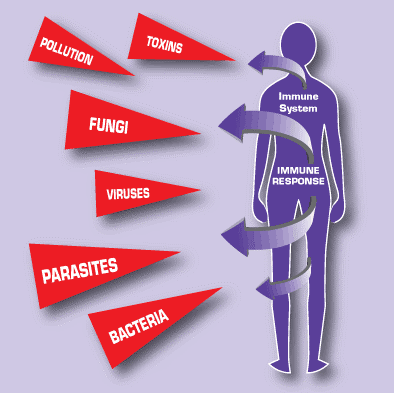8th Grade Comp Science
Mrs. Colyer's

Click PDF button below to view presentation
Benchmark - SC.6.L.14.6 Compare and contrast types of infectious agents that may infect the human body, including viruses, bacteria, fungi, and parasites.
Click PDF button below to download and print the guided notes


Vocabulary
1. Infectious - transmitted from one person to another or from one part of the body to another
2. Parasite- an organism that lives on or in an organism of another species(the host)and harm the host by taking nutrients from the host
3. Pathogen - a microorganism, another organism, virus, or protein that causes disease
4. Vaccine - A substance that is prepared from killed or weakened pathogens or from genetic material that is introduced into a body to produce immunity
5. Virus - a non-living, infectious particle composed of a nucleic acid and a protein coat, it can invade and destroy a cell.
6. Bacteria - a domain made up of prokaryotes that usually have a cell wall and that usually reproduce by cell division, can cause disease
7. Fungi - a kingdom make up of non-green, eukaryotic organism that reproduce by using spores, and get food by breaking down substances in their surroundings and absorbing nutrients.
1. How is being vaccinated similar to being infected with a disease?
2. How can infectious disease be transmitted?
3. How can diseases be reduced?
4. Why do schools send students home with a fever or pink eye.
5. Why is it important to not come to school when you are contagious?
Hot Questions
Essential Questions
Infectious Disease
1. How is being vaccinated similar to being infected with a disease? A weak or dead virus is introduced to the body so that the immune system will recognize the virus. The immune system will then recognize the virus the next time it comes in contact with the body and know how to defeat it.
2. How can infectious disease be transmitted? Infectious diseases are transmitted by pathogens like viruses, bacteria, fungi and parasites. They are transmitted by poor hygiene, dirty or contaminated water, eating contaminated food or undercooked food and animals like mosquitos, fleas, ticks, bats or other animals.